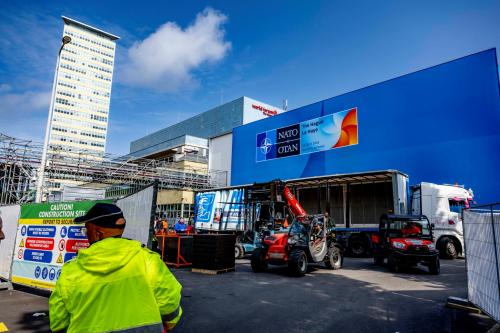One of the tasks for the G20 Summit in London is the reform of the IMF and the World Bank, key global institutions to help address the current crisis and to prevent the occurrence of future crises. Reform of the IMF is more urgent both in the short and medium term while reform of the World Bank, although equally important, is less pressing.
The G20 faces a few immediate priorities related to the IMF: First, G20 leaders should agree to triple IMF resources from the current level of $250 billion to $750 billion to help meet the financing needs of developing countries. This is critical because the World Bank has estimated that these countries may face a shortfall of up to $700 billion in 2009 alone. Second, G20 leaders should request that the IMF monitor and report transparently on the commitments and implementation of G20 national stimulus plans and efforts to repair their banking sectors. Third, G20 leaders should commit to a far-reaching reform of the IMF by 2010.
While this third step may seem like a lesser priority for leaders as they face a global recession, reform of the IMF must be accomplished in order to restore the legitimacy and effectiveness of the institution. Reform would introduce the merit-based selection of the head of the IMF, irrespective of nationality, eliminate the veto of the U.S. in key decisions and would broaden the application of double-majority voting as a way to increase the role of smaller members. It would also substantially revise the rule of quota and vote distribution to reflect accurately and fairly the current and future economic weight of the members.
Reform would also transform the current IMF’s Board of Directors from a bureaucratic body to a high-level policy decision-making forum of ministers. Many of these measures were proposed by a committee chaired by Trevor Manuel, Minister of Finance of South Africa, which comprised a distinguished cast of international experts. The G20 should endorse those recommendations in full.
Together, these three steps serve as a critical foundational action to ensure that the IMF can stand ready to fight the immediate crisis, as well as help prevent future crises from forming.
The impact of the financial crisis on developing countries underscores the need for the World Bank and the regional development banks to do even more—and immediately—to help prevent the worst effects of the crisis from seriously reversing long-term gains in economic and human development.
Shareholders of these development banks must replenish the capital base (especially urgent in the case of the Asian Development Bank) and make a commitment to replenish the resources for the banks’ soft-loan windows. And the World Bank and the regional development banks must make an even greater push to overcome traditional bureaucratic and policy barriers to ensure quick and efficient crisis response.
Longer term, the reform of the World Bank should tackle the merit-based selection of the World Bank president—without regard to nationality; a revamping of shareholdings and voting rights in the executive boards of the institution to give a greater voice to emerging market economies and to borrowers more generally; and an overhaul of the Bank’s operational modalities so it can react with less bureaucratic and time-consuming burdens to the legitimate needs of its borrowers.
These reforms of both the IMF and World Bank will require a readiness by the U.S. and Europeans to forgo long-standing prerogatives and strongly held positions, but action will help ensure early recovery from the current global financial crisis and the future capabilities of these institutions, which are needed to foster global financial stability and reduce global poverty.
Originally submitted to the Great Debate by Johannes Linn on March 30, 2009.
The Brookings Institution is committed to quality, independence, and impact.
We are supported by a diverse array of funders. In line with our values and policies, each Brookings publication represents the sole views of its author(s).



Commentary
Op-edReform the International Monetary Fund and World Bank
March 30, 2009